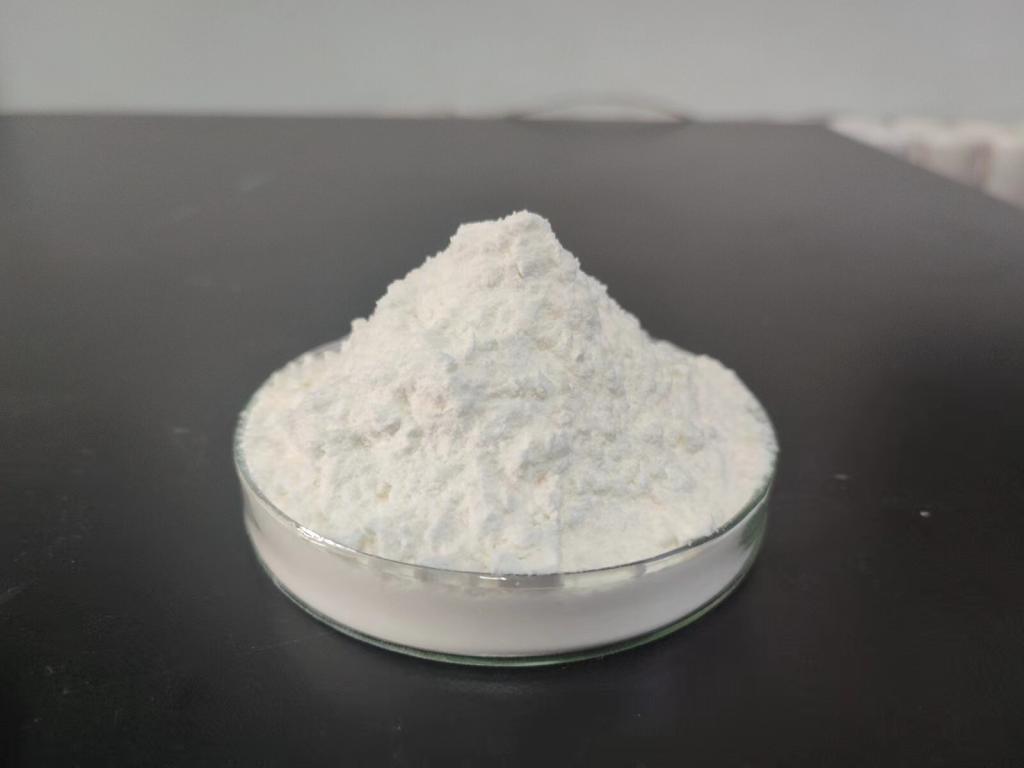Tel:0086 18231198596

News
ε-Polylysine hydrochloride: A Novel Antimicrobial Agent.
TIME:2024-05-22
In recent years, there has been increasing interest in the development of natural antimicrobial agents as alternatives to traditional chemical preservatives. ε-Polylysine hydrochloride, a polycationic peptide derived from natural sources, has emerged as a promising candidate due to its broad-spectrum antimicrobial activity and low toxicity. In this article, we provide a comprehensive overview of ε-polylysine hydrochloride, including its characteristics, mechanisms of action, applications, and potential benefits in various industries.
2. Characteristics of ε-Polylysine Hydrochloride
ε-Polylysine hydrochloride is a water-soluble polymer composed of multiple lysine residues linked by peptide bonds. It is typically produced through fermentation of Streptomyces albulus or other microorganisms. ε-Polylysine hydrochloride is biodegradable, non-toxic, and generally recognized as safe (GRAS) by regulatory agencies, making it suitable for use in food and pharmaceutical applications. It exhibits potent antimicrobial activity against a wide range of Gram-positive and Gram-negative bacteria, as well as fungi and yeasts.
3. Mechanisms of Action
The antimicrobial activity of ε-polylysine hydrochloride is attributed to several mechanisms:
Disruption of Cell Membrane: ε-Polylysine hydrochloride binds to negatively charged components of microbial cell membranes, causing membrane disruption and leakage of intracellular contents.
Inhibition of Protein Synthesis: ε-Polylysine hydrochloride can penetrate microbial cells and inhibit protein synthesis, leading to cell death.
Chelation of Metal Ions: ε-Polylysine hydrochloride may chelate metal ions required for microbial growth and metabolism, further inhibiting microbial proliferation.
These mechanisms collectively result in the inhibition of microbial growth and the prevention of food spoilage and contamination.
4. Applications
ε-Polylysine hydrochloride has diverse applications across various industries:
Food Preservation: ε-Polylysine hydrochloride is used as a natural preservative in a wide range of food products, including meats, dairy, beverages, and baked goods. Its antimicrobial activity helps extend the shelf life of perishable foods and reduce the need for chemical preservatives.
Pharmaceuticals: ε-Polylysine hydrochloride is incorporated into pharmaceutical formulations to prevent microbial contamination and ensure product stability. It is used in topical ointments, oral medications, and medical devices to maintain sterility and safety.
Cosmetics: ε-Polylysine hydrochloride is added to cosmetic products such as creams, lotions, and shampoos to inhibit the growth of bacteria and fungi, thereby extending product shelf life and ensuring consumer safety.
Agriculture: ε-Polylysine hydrochloride is applied in agriculture as a biopesticide to control plant pathogens and pests. Its environmentally friendly nature and low toxicity make it an attractive alternative to chemical pesticides.
5. Challenges and Future Prospects
Despite its promising antimicrobial properties, ε-polylysine hydrochloride faces challenges related to its production cost, stability, and regulatory approval. Future research efforts should focus on optimizing production processes, improving formulation techniques, and conducting comprehensive safety assessments to overcome these challenges. Additionally, exploring synergistic combinations with other natural antimicrobial agents and nanomaterials could enhance the efficacy and versatility of ε-polylysine hydrochloride in various applications.
6. Conclusion
ε-Polylysine hydrochloride represents a promising natural antimicrobial agent with broad-spectrum activity and diverse applications in food, pharmaceuticals, cosmetics, and agriculture. Its unique characteristics, including biodegradability, low toxicity, and antimicrobial efficacy, make it an attractive alternative to traditional chemical preservatives. By addressing challenges and leveraging its potential in various industries, ε-polylysine hydrochloride can contribute to sustainable and safe food production, pharmaceutical development, and environmental protection.

 CONTACT
CONTACT




